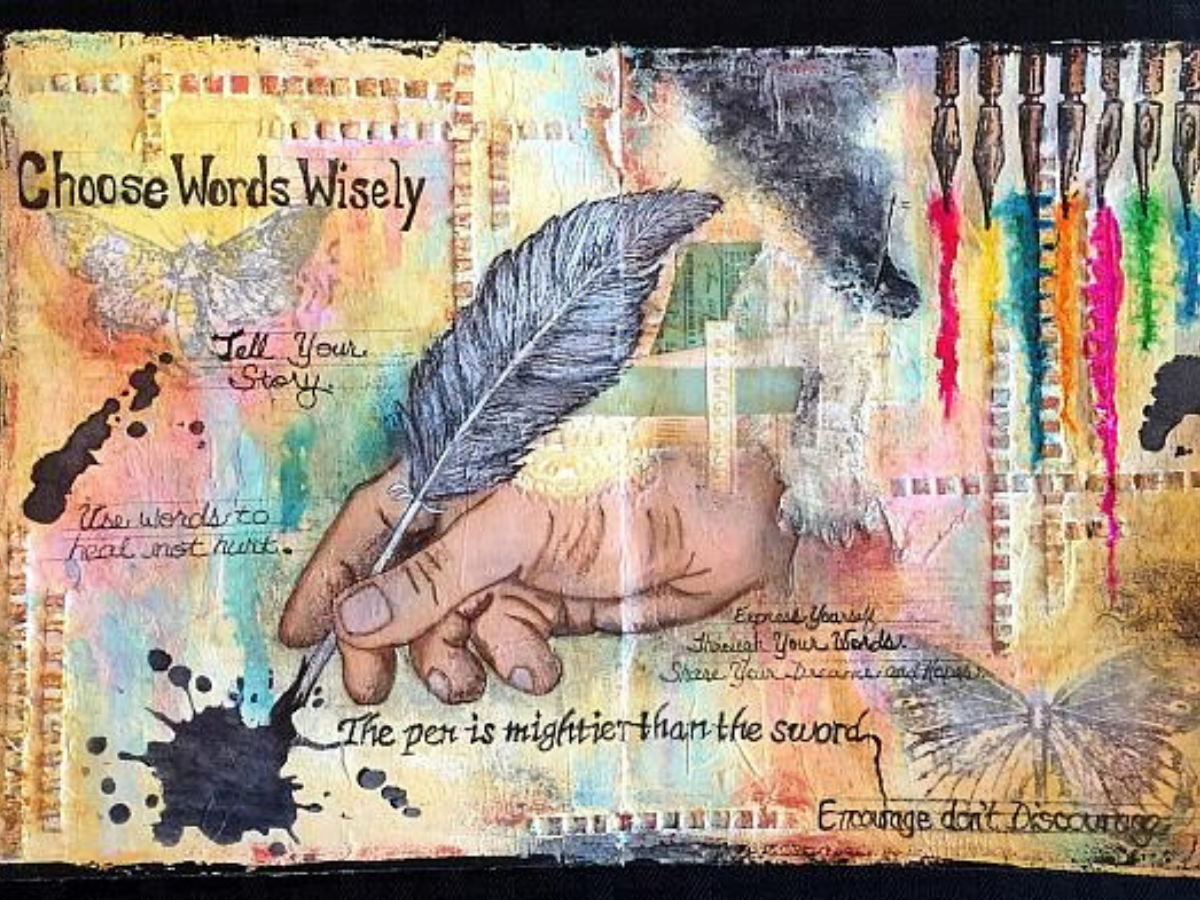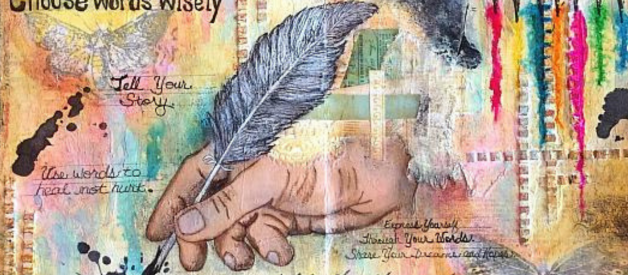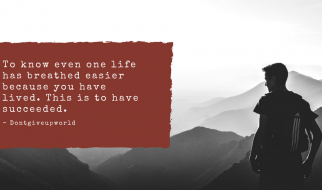When you are blocked and want to write a poem, give found poetry a try to stimulate creativity and formulate new ideas.

I have been creating stories since I can remember, whether they were told or just kept in my head. Once I learned to express myself on paper I began writing them down in notebooks. I never had trouble coming up with ideas for short stories, as I always had a very creative and fertile imagination. Never, at least, until the last several years.
This was a huge frustration for me, which got worse the more I tried to force an idea. I attempted to use some of the standard techniques for getting over writer?s block like ?just write anything and keep writing until you?ve written yourself out of it.? These techniques never worked for me since once I was already distressed over my inability to write, writing a bunch of garbage just served to further convince me I had no talent and no ability.
This is a common phenomenon in writers called impostor syndrome. It meant that I never felt like a ?real writer? since ?real writers,? could find a way out of being blocked, or their block only lasted for hours or possibly as long as a day at a time. Sometimes I had periods when I was completely blocked or couldn?t come up with anything I thought was particularly good that lasted for weeks at a time.
What I came to realize through not just my creative writing endeavors, but through my non-fiction work as well, was that we each have different things that help us come up with ideas and get out of a blocked state. Some need to power through by writing anything while others need to stop writing and do something to take their mind off of it. Many writers use prompts when in need of an idea and the types of prompts used also differ.
Using Writer?s Prompts
Personally, I have never found single word prompts particularly useful especially when experiencing writer?s block. I need a certain amount of detail or structure to help trigger my creativity. This is why Oulipo works so well for me. At the same time, some people find detailed prompts to hinder originality because it gives too many details. They feel that once their mind starts following the direction the prompt takes, it curtails their ability to think beyond it and they have trouble coming up with anything other than what the prompt provides.
While I have gotten good at being able to identify the types of prompts that are best for me to use when I have trouble coming up with ideas for my fiction, I never thought about using prompts to trigger ideas for poems. My poetry muse is very fickle and doesn?t make appearances regularly. When she arrives, she does provide the inspiration for me to construct a poem that I feel satisfied with, but I?ve always just accepted that the poems that I create will be few and far between.
Using Writer?s Prompts for Poetry: Found Poems
I guess I never thought of using prompts for poetry because for me I need to have in mind strong imagery and unique phrases, which use language in an interesting way. These elements are related for me, and both have to fall within whatever rhythm I for as the bones of the poem. Prompts didn?t seem like something that would be capable of helping me generate these characteristics.
As I began to write more poetry, I searched for prompts that would help me come up with ideas but found what I expected, that they weren?t helpful. Then I participated in a poetry challenge for The Chalkboard publication which called for Magnet Poems.
Magnet poetry involves finding poems in other original pieces of work. It?s a form of collaborative poetry that is named for the word magnet sets you can buy at bookstores and other shops that let you create messages, poems, ideas, or whatever else you choose by rearranging the words on your refrigerator. For the contest, words were obtained from other Medium writer?s poems.
Taken from the call for entries was this description:
Magnet poetry is a form of found poetry where the words in existing poems are cut up and rearranged to form a new poem, sometimes with the opposite meaning of the original poem.
The instructions were to choose 2?3 poems from those on Medium, select at least five words from each poem, then create a new poem using those words. The poem I created was entitled, ?Supposing Dawn.?
The prompt for magnetic poetry and the poems that result are a specific type of a broader category call found poetry. Traditionally, found poetry is created using random news headlines, street signs, menus, billboard ads, graffiti, flyers, etc.
How to Create a Found Poem
- Select the source material that you will use. It?s often easiest the first time you try this technique to just use one or two other poems. This gets you in the right frame of mind.
- Choose a focus. You can use something that is based on a feeling, secondary idea, object or image from one or more of your source poems or come up with one of your own. For example, perhaps your focus is the seashore, an old blue sweater, a porcelain doll, a sunset, thunderstorm or a feeling of awe.
- Determine the theme of your poem. You can use the theme of one of the poems you are using, or a combination of the poems you are using. You might also use the opposite theme of one or more poems you are using. Or choose something that has nothing to do with any of the poems you are using. For example, if you chose the seashore as your focus, your theme might be the cyclical nature of life.
- Read your source poem or poems again. As you read, underline details and phrases (no longer than 2?3 words each) that you think are powerful and support your focus.
- Write these down on a piece of paper that is separate from the one you have your original source poems on. Cut out each word and phrase
- Look over your words and get rid of any that seem boring or don?t seem to fit so well with your theme or focus.
- Mix up the order of the words or phrases by moving them around until original lines begin to form in your mind. Write each line down. Get rid of the words as you use them but keep them nearby so you can reuse them if you decide you don?t like some of your lines.
Some other suggestions for creating found poems include:
- Try to use the words in their original form. I do allow myself to use derivatives of the words when I need to in order to make a line work and I can?t find a satisfactory way of including the original form (e.g. change to singular or plural, change a verb to an adverb etc.
- Try not to use each word or phrase more than once unless the structure of the poem calls for repetition.
- Remember to keep to your focus and theme.
- Add a statement at the bottom, if desired, which discusses why you chose the words that you did and how your theme and focus played on one or more from the original sources.
- Be sure to include a reference with the title of the original works used, who wrote them and where you got them from.
- Try mixing up classical poetry from different eras and countries with modern poetry and poetry written poets I know. I might use poems written by Shakespeare, Poe, William Carlos Williams and a friend of mine.
- Add in words here and there from labels on products around the house, signs and billboards you pass and news headlines that you notice throughout the day. Keep a notebook with you to record interesting words and descriptive phrases that you come across. Record what they are from and where you saw them.
- If you overhear people talking and they use interesting words, jot those down in your notebook.
- When you?re working on your poem, as you are creating lines, go through your notebook to see what stands out in terms of the poem you?re writing at the time.
- Don?t let yourself become overly constrained by what you believe to be the rules for constructing found poems. Writing prompts can be interpreted in whatever ways spark your creativity. If you want to change the rules so that they are more in line with your style of writing and what you need at the time, then go right ahead. The goal is not sticking to the rules at all costs. The goal is to find something that will help you use your imagination to better craft the poetry you want to compose.
What other sources can you think of that would add more diverse, interesting and unique words to the list you?ll use to write your own poems? Have you ever tried writing this type of poetry before? Share your answers in the comments below.
Thanks to Chalkboard and The Writing Cooperative for the May Magnet Poem Challenge.
Natalie Frank (Taye Carrol) has had work featured in Haunted Waters Press, Weirdbook Magazine, Siren?s Call Publications, Lycan Valley Press and Zero Fiction among others. Her poetry has been featured a several anthologies. She is the Managing Editor for Novellas and Serials at LVP Publications.

If you enjoyed reading this story, you might also enjoy these:
How Writing Flash Fiction Made Me a Stronger Writer
I?ve loved writing ever since I could remember. Perhaps part of it was because I was so painfully shy, to the point of?
writingcooperative.com
Departure From Fear?s Foolish Ways
He made me wild as fox and hare
medium.com
Where Can I Submit Poetry on Medium?
A list of publications that accept poetry on Medium.
medium.com
You can find links to my other work on Medium and follow me here. Thanks for reading!


